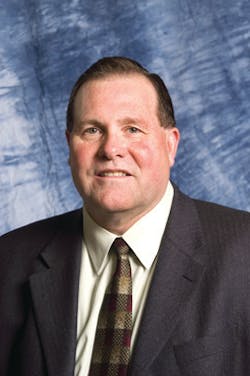Fire Politics: 15 Lessons in Leadership From the U.S. Senate Floor
A speech was given on the floor of the U.S. Senate in late January 2013 that provided interesting insight into the leadership beliefs of a particular outgoing senator. He was leaving office after 28 years in the Senate. The speech was 50 minutes long, but several days later, a summary of the speech was released that highlighted 15 key leadership lessons that this senator had strived for himself and admired in leaders who historically had been very successful in politics. When you finish reading them, what may cross your mind is that these lessons apply to leaders in all aspects of society, not just in politics.
Although they won’t be entirely new to you, they provide excellent guidance to leaders in general, including the fire service. Following are the concepts he shared. I have included my own explanatory narrative to each one in an effort to elaborate on them and relate them to fire service politics.
1. Failure is important – it teaches us humility. We all know the importance of being able to deal with outcomes that do not end in our favor. Our setbacks teach us a lot of things about leadership, and also about how to conduct ourselves as human beings.
2. Acknowledgement matters – give thanks to the big and little people whose shoulders you stand on. For every successful leader, there are people (other leaders and followers) who helped make that success possible. Taking credit for the accomplishments of others, or not giving credit where credit is due, can cause a loss of credibility, trust and respect for the leader.
3. Government workers should be celebrated, not demonized. Firefighters are examples of government workers who play a critical role in the safety of our society. Any leader who publicly represents his or her workers in a way that is demeaning will simply lose the support of the work group.
4. Respect our institutions; they’re bigger than any one person and they unite us. One thing leaders have in common is that they are almost always part of government or private-sector institutions that provide them with the capability to function and succeed. Long after the current leaders and workers are gone, the institutions will go on. They will be better because of the current leaders and workers, or perhaps they will be at a disadvantage because of the performance and conduct of the current leaders and workers.
5. Servant leadership is the truest kind of leadership – and it demands courage. The primary responsibility of a leader is to function in a way that makes those they lead as effective as possible. Being successful as a leader usually requires the ability to empower people to be successful in their roles and work to help others do the same. This requires trust, respect and courage on the part of leaders.
6. Divided we will certainly fail. Work groups are usually organized into teams for a reason. Doing so captures the individual capabilities of the team members and integrates them into a collective team effort. We’ve all been told that “a chain is only as strong as its weakest link.”
7. We must lead for our times and for all times. Leaders should address the needs and problems of today while keeping one eye focused on what may be necessary tomorrow. Leaders should show respect for the efforts of the past, address the needs of today and anticipate the challenges and needs of tomorrow.
8. Our choices, not process and rules, define us. Leaders will be judged on what they do and the decisions they make. No matter how difficult or unpopular, leaders should not hide behind processes and rules that are not appropriate or that get in the way of doing what is right.
9. Our problems are manmade, so they can be solved by man. Seldom is anything so difficult that it can’t be made better by the collective efforts of leaders and workers. Leaders must stay positive and remember that there is only one thing that is the end of the world…and that’s the end of the world.
10. Politics in our nation faces three challenges – lack of respect, the corrupting influence of money and disregard for fact. Political leadership in our country has been significantly polarized for the past several years. We know what contributes to the polarization and should show the courage and commitment to overcome the barriers. Those who choose to be part of the political process should act in a way that doesn’t corrupt political institutions.
11. Leadership must be by example. For many years, I’ve discussed what I refer to as the “Rites of Passage of Leadership.” Leading by example is paramount among them. Do as I say, not as I do, doesn’t work. It never has and never will.
12. Relationships matter. Leaders solve day-to-day problems with policies and procedures, but they solve the really big ones through relationships. Relationships add to, or distract from, the effectiveness of leaders throughout society.
13. Diversity strengthens us. Diversity in any group or team tends to make their work and their outcomes more effective. As people, we need to be considerate of each other, discrete in the things we say and do to each other, acceptant of the differences within us and stress the importance of unity in the group or team.
14. Youth shouldn’t stop us from sharing our voice or listening to others. Leaders should encourage the participation of the entire work group and take advantage of what they can offer, no matter how new or senior they may be in the group. Neither end of the seniority spectrum has all the answers. They must all be willing to listen to each other to make the group most effective.
15: Listening is what matters most. Leaders all have two ears and one mouth for a reason. It can often be helpful to listen twice as much as we talk.
The U.S. senator I was referring to is now the secretary of state – John Kerry. No matter what our own political affiliation or beliefs may be, these concepts could relate to all leaders, including those in the fire service. History tells us that over time, it’s usually more important to be effective than right, and sometimes we can all try to be way too right. These 15 leadership concepts may be particularly useful to those in the fire service who get involved as leaders in non-partisan politics at any level of government.
For more news and training on fire service politics, visit: http://www.firehouse.com/topics/politics-law.
DENNIS COMPTON, a Firehouse® contributing editor, is a speaker and the author of Progressive Leadership Principles, Concepts and Tools, the When in Doubt, Lead! books, the book Mental Aspects of Performance for Firefighters and Fire Officers, and many articles, chapters and other publications. He was the fire chief in Mesa, AZ, for five years and assistant fire chief in Phoenix, where he served for 27 years. Compton is past chairman of the Executive Board of the International Fire Service Training Association (IFSTA) and past chairman of the Congressional Fire Services Institute’s National Advisory Committee. He is currently chairman of the National Fallen Firefighters Foundation Board of Directors.
About the Author

Dennis Compton
Chief
DENNIS COMPTON is a well-known speaker and the author of several books, including his most recent offering titled Progressive Leadership Principles, Concepts and Tools. He also authored the three-part series of books titled When in Doubt, Lead, the book Mental Aspects of Performance for Firefighters and Fire Officers, as well as many articles, chapters and other publications. Compton was the fire chief in Mesa, AZ, for five years and an assistant fire chief in Phoenix, where he served for 27 years. He is past chairman of the Executive Board of the International Fire Service Training Association (IFSTA) and past chairman of the Congressional Fire Services Institute (CFSI) National Advisory Committee. Compton is currently the chairman of the National Fallen Firefighters Foundation (NFFF) Board of Directors and co-chairs the Fire Service-Based EMS Advocates Steering Committee.
